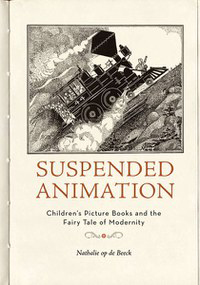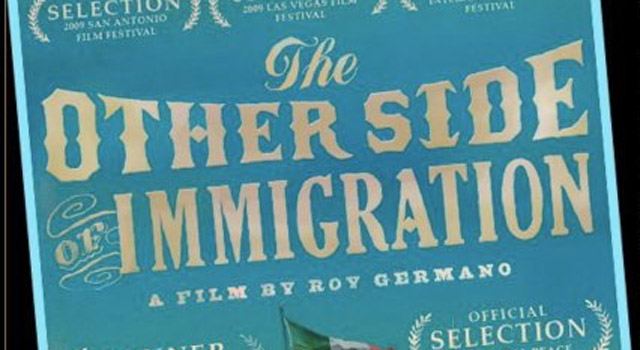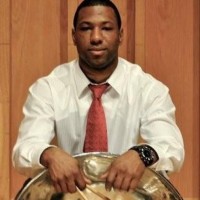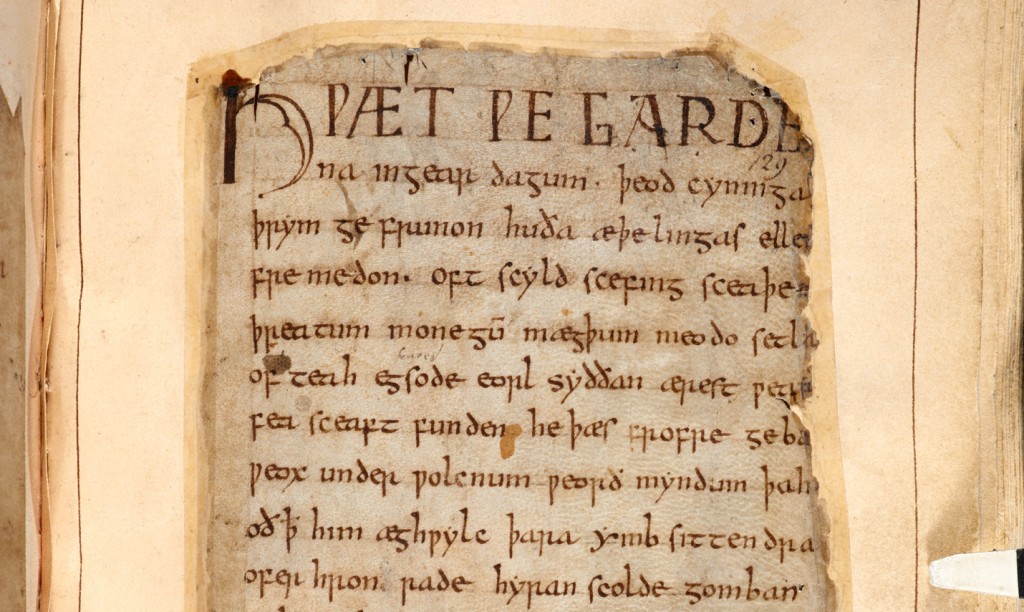Page 5 • (306 results in 0.021 seconds)
-

Lutes played to more than 800 students, band directors and music lovers who packed the house at the Western International Band Clinic on Saturday, November 21, 2015. The PLU Wind Ensemble was featured during the festival’s Saturday night performance and was one of only four…
students were professional and played beautifully. Through many tight time windows and unexpected difficulties, the students stayed cool and delivered,” Ed Powell, PLU Wind Ensemble director, commented. “It was their best performance of the year thus far.” The clinic was a three-day event featuring many guest performers, including the Canadian Brass and PLU’s professional ensemble, the Lyric Brass Quintet. “The feedback was overwhelming. [Guest conductors] came up to me after the performance to gush. I
-
MediaLab wins Emmy award Four student researcher-filmmakers in Pacific Lutheran University’s MediaLab program won a 2009 College Division Emmy Award at the 46th Annual Northwest Regional Emmy Awards Ceremony. Junior Melissa Campbell and seniors Julie Olds, Shannon Schrecengost and Emilie Firn were honored for their…
America. The documentary won in the News Long Form category, competing against colleges and universities from Alaska, Montana, Idaho, Oregon and Washington. Research on “Illicit Exchanges” began in October 2007, and the team began conducting interviews and filming in January 2008. The team traveled nearly 10,000 miles across North America, devoted the spring and summer months to documenting the transfers and effects of illegal drugs and firearms that cross the U.S. and Canadian border. Their work
-

PLU prof’s book wins ChLA Book Award Suspended Animation: Children’s Picture Books and the Fairy Tales of Modernity , has received the Children’s Literature Association (ChLA) Book Award for books published in 2010. The book was written by Nathalie op de Beeck, PLU associate professor…
April 3, 2012 PLU prof’s book wins ChLA Book Award Suspended Animation: Children’s Picture Books and the Fairy Tales of Modernity, has received the Children’s Literature Association (ChLA) Book Award for books published in 2010. The book was written by Nathalie op de Beeck, PLU associate professor of English. It was published by the University of Minnesota Press. Suspended Animation analyzes the phenomenon of American picture books and what their imaginative form and content reveal about the
-

“The Other Side of Immigration” examines the impact migration has on the families that stay behind. “The Other Side of Immigration” By Katie Baumann ’14 PLU welcomed Roy Germano to campus this fall as part of the 2012 Department of Language and Literature Film Festival…
November 12, 2012 “The Other Side of Immigration” examines the impact migration has on the families that stay behind. “The Other Side of Immigration” By Katie Baumann ’14 PLU welcomed Roy Germano to campus this fall as part of the 2012 Department of Language and Literature Film Festival Series, to show his documentary, ‘The Other Side of Immigration.” This film explores why so many Mexicans leave their homes to migrate to the United States and explores another side of the issues surrounding
-

PLU concert celebrates Black History Month Pacific Lutheran University pays tribute to the artistic entrepreneurship of African Americans with a Black History Month Concert that celebrates a lasting legacy of music, literature and art. Covering a rich tapestry of gospel, blues, jazz and concert works,…
January 24, 2014 PLU concert celebrates Black History Month Pacific Lutheran University pays tribute to the artistic entrepreneurship of African Americans with a Black History Month Concert that celebrates a lasting legacy of music, literature and art. Covering a rich tapestry of gospel, blues, jazz and concert works, along with recitations from classic African-American literature, the concert will feature PLU student ensembles—including the University Symphony Orchestra, Wind Ensemble, Jazz
-

By Zach Powers & Mandi Brady PLU Marketing & Communications and the School of Arts and Communication TACOMA, Wash. (Jan. 30, 2015)— Inspired by his passion for theater and children’s literature, Director Mitchell Helton ’15 is hoping to help kick-start a revitalization of the PLU…
Student-Director Mitchell Helton Hopes ‘Charlotte’s Web’ Production will help Revitalize Children’s Theatre at PLU Posted by: Zach Powers / January 30, 2015 Image: (Photo: Zach Powers/PLU) January 30, 2015 By Zach Powers & Mandi Brady PLU Marketing & Communications and the School of Arts and Communication TACOMA, Wash. (Jan. 30, 2015)—Inspired by his passion for theater and children’s literature, Director Mitchell Helton ’15 is hoping to help kick-start a revitalization of the PLU Children’s
-
Ned Schaumberg is a Visiting Assistant Professor at Pacific Lutheran University (PLU) who teaches postcolonial and global literature, and researches the role of water in literary and environmental contexts. He could also save your life. According to his parents, Schaumberg’s journey to professorship began at…
Changing Lives One Book at a Time with Professor Ned Schaumberg Posted by: hoskinsk / May 7, 2020 May 7, 2020 By Kiyomi Kishaba '21English & Communication MajorNed Schaumberg is a Visiting Assistant Professor at Pacific Lutheran University (PLU) who teaches postcolonial and global literature, and researches the role of water in literary and environmental contexts. He could also save your life.According to his parents, Schaumberg’s journey to professorship began at the age of seven. When most
-

As a professor in the Department of Languages and Literature, Dr. Collin Brown teaches Norwegian language and Nordic studies at Pacific Lutheran University. However, his love for his work runs so deep, he also started and manages a club called “The Dead Languages Society.” As…
The Importance of Dead Languages Posted by: hoskinsk / May 6, 2020 Image: Beowulf manuscript May 6, 2020 By Reece Schatz '22English MajorAs a professor in the Department of Languages and Literature, Dr. Collin Brown teaches Norwegian language and Nordic studies at Pacific Lutheran University. However, his love for his work runs so deep, he also started and manages a club called “The Dead Languages Society.”As a member of this club myself, allow me to explain what we do. The Dead Languages
-
Angela Tennant ’12 Degree: Bachelors of Fine Art – Theatre, Acting Directing with an English Literature minor Organizations: Alpha Psi Omega (Member and Historian), Vpstart Crow (President), CLAY CROWS Improv (Member), SOAC Advisory Board Where are you now? “I currently reside in New York City. Upon graduation…
Alumni Check-in: Angela Tennant ’12 Posted by: Mandi LeCompte / March 20, 2013 March 20, 2013 Angela Tennant ’12 Degree: Bachelors of Fine Art – Theatre, Acting Directing with an English Literature minor Organizations: Alpha Psi Omega (Member and Historian), Vpstart Crow (President), CLAY CROWS Improv (Member), SOAC Advisory Board Where are you now? “I currently reside in New York City. Upon graduation at PLU, I was accepted into the MFA Acting program at The New School for Drama, and I’m in
-
On Thursday, February 20, the 2014 SOAC Focus Series on Entrepreneurship will kick off with the Black History Month Concert in Lagerquist Concert Hall. Directed by David Deacon-Joyner, the concert plays tribute to the entrepreneurship of African-Americans featuring the legacy of their music, literature, and…
Black History Month Concert kicks off 2014 SOAC Focus Series on Entrepreneurship Posted by: Mandi LeCompte / January 21, 2014 January 21, 2014 On Thursday, February 20, the 2014 SOAC Focus Series on Entrepreneurship will kick off with the Black History Month Concert in Lagerquist Concert Hall. Directed by David Deacon-Joyner, the concert plays tribute to the entrepreneurship of African-Americans featuring the legacy of their music, literature, and art. A joint effort by the PLU School of Arts
Do you have any feedback for us? If so, feel free to use our Feedback Form.


